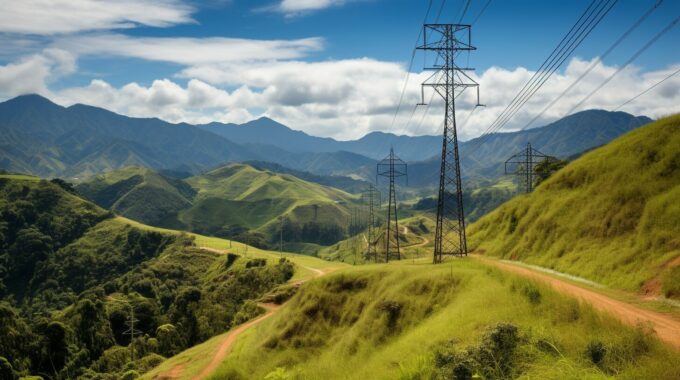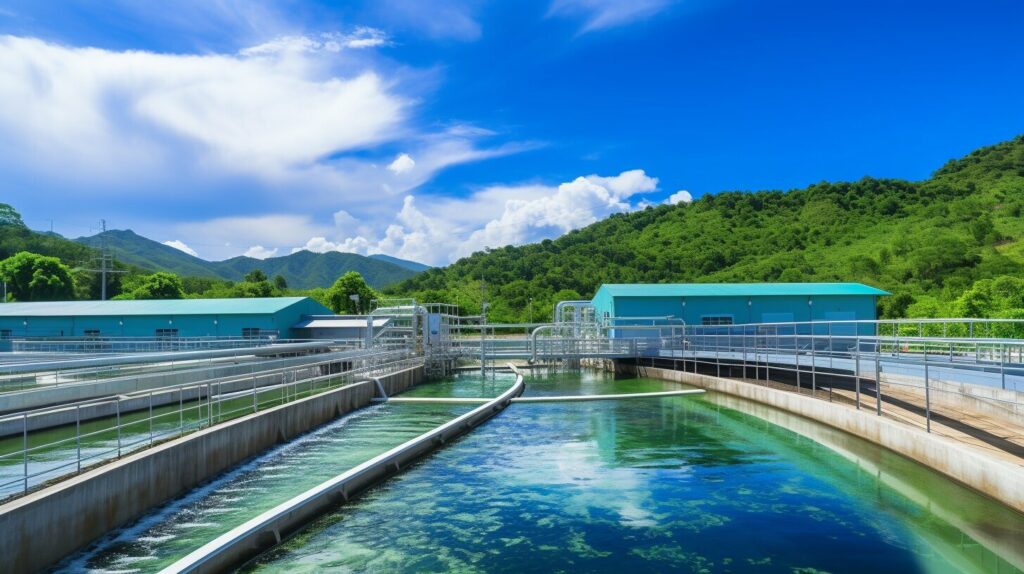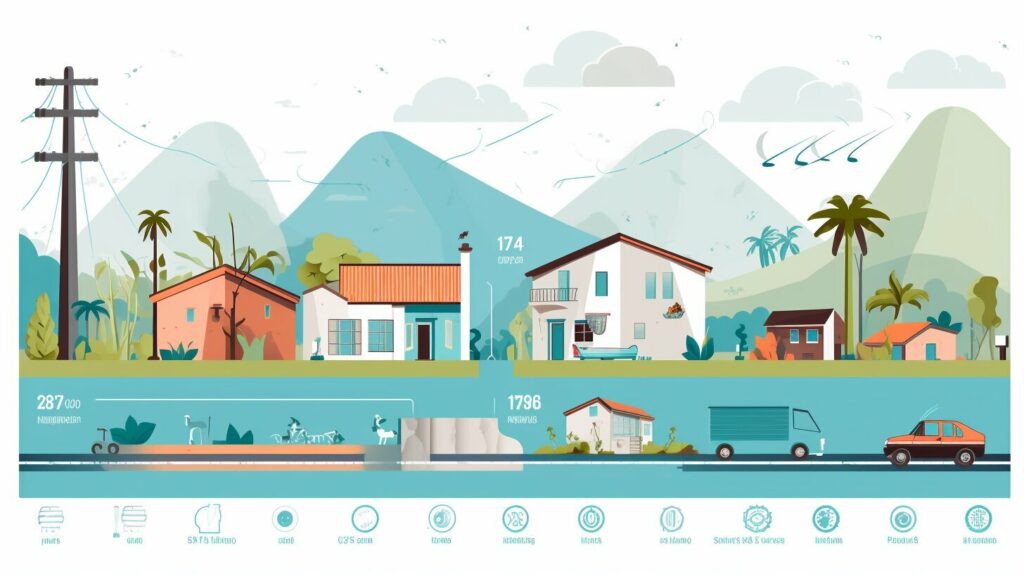At the forefront of property financing in Costa Rica, GapInvestments.com stands as a beacon for…

Understanding Utilities in Costa Rica: Essential Guide
Electricity, Water, and Internet Services in Costa Rica
Electricity bills can vary based on usage and location, with air conditioning costs impacting the monthly bill. Phone, internet, and cable TV packages are reasonably priced, with multiple providers available. Propane gas is commonly used in Costa Rica as there is no city gas infrastructure. Sewage systems vary, with most homes having their own septic tank. Garbage pickup is typically done twice a week and is the responsibility of the municipality. Water is of high quality and reasonably priced, with monthly bills ranging from $10-15. Transportation costs can be managed by utilizing public transportation such as buses and trains. Healthcare expenses in Costa Rica are significantly lower than in North America or Europe, with the option of public healthcare for residents or private health insurance. Utility bills can be paid in cash or through online banking, with supermarkets and pharmacies also accepting payments. It is important to keep track of due dates as grace periods are short.
Costa Rica utilities cost is relatively low, making it an affordable destination to live or stay. One-bedroom apartments in Costa Rica range from $360 to $800 per month. The average monthly cost for utilities in Costa Rica is around $100, covering electricity, water, and internet. Transportation costs are variable, but public buses are a cost-effective option. Food costs in Costa Rica range from $4.50 to $40 per meal, providing affordable dining options. Healthcare in Costa Rica is affordable, with doctor’s visits averaging $60 to $75 and basic medical tests costing under $100. Expats may be required to file tax returns in Costa Rica, with progressive tax rates ranging from 10% to 25%.
In addition, it is important to do due diligence on utilities when buying land for construction in Costa Rica. This includes checking the availability, quality, and cost of utilities such as electricity, telephone, internet, and water. Documentation provided by the seller can be sufficient, but in the absence of it, it is necessary to visit the local offices of the relevant utility providers. For electricity, one would need to visit the Instituto Costarricense de Electricidad (ICE) or the local company or co-op providing power in the area. Telephone service is provided by ICE, while internet availability can be checked with ICE, Radiografía Costarricense S.A. (RACSA), or the local cable provider. Water supply is managed by Acueductos y Alcantarillados (AyA) or local organizations called ASADAS. In case of no water access, drilling a well requires a concession from the Ministry of Energy, Environment, and Telecommunications (MINAET).
Overall, understanding the utilities in Costa Rica is crucial for managing costs, ensuring access, and making informed decisions about living or investing in the country.
| Utility | Average Monthly Cost | Providers |
|---|---|---|
| Electricity | $50-150 | Instituto Costarricense de Electricidad (ICE), local companies, co-ops |
| Water | $10-15 | Acueductos y Alcantarillados (AyA), ASADAS |
| Internet | $30-50 | Radiografía Costarricense S.A. (RACSA), ICE, local cable providers |
“Costa Rica utilities cost is relatively low, making it an affordable destination to live or stay.”
- Electricity bills in Costa Rica vary based on usage and location, with air conditioning costs impacting the monthly bill.
- Utilities such as phone, internet, and cable TV are reasonably priced, with multiple providers available.
- Propane gas is commonly used, while sewage systems and garbage pickup depend on individual homes and municipal responsibility, respectively.
- Water in Costa Rica is of high quality and reasonably priced, with transportation costs managed through public options like buses and trains.
- Healthcare expenses in Costa Rica are significantly lower than in North America or Europe, with options for public healthcare or private insurance.
- Due diligence on utilities is important when buying land for construction, including checking availability, quality, and cost.
Propane Gas, Sewage Systems, and Garbage Pickup
Propane gas is commonly used in Costa Rica as there is no city gas infrastructure. This clean-burning fuel is widely utilized for cooking, heating, and water heating purposes. It is readily available from various suppliers throughout the country, making it convenient for residents and visitors alike. The cost of propane gas can vary depending on location and provider, usually ranging from $15 to $30 for a 25-pound tank refill. It is important to note that propane gas tanks require periodic inspection and recertification to ensure safety.
Sewage systems in Costa Rica can vary depending on the location and type of property. Most homes have their own septic tanks, which require regular maintenance and periodic emptying. In areas with more developed infrastructure, especially in urban centers, properties may be connected to a municipal sewage system. It is essential to understand the type of sewage system in place when buying or renting a property to ensure proper maintenance and compliance with local regulations.
Garbage pickup in Costa Rica is typically done twice a week and is the responsibility of the municipality. Residents are required to separate their waste into recyclables and non-recyclables, which are collected separately. The municipal government provides bins or bags for waste disposal, and residents must abide by the designated collection schedule. It is important to note that improper waste disposal or failure to comply with recycling regulations may result in fines.
| Utility Service | Key Information |
|---|---|
| Propane Gas | – Widely used for cooking, heating, and water heating purposes – Costs range from $15 to $30 for a 25-pound tank refill |
| Sewage Systems | – Most homes have their own septic tanks – Municipal sewage systems in more developed areas – Understanding the type of system is crucial for maintenance and compliance |
| Garbage Pickup | – Twice a week collection by the municipality – Residents must separate waste into recyclables and non-recyclables – Failure to comply with recycling regulations may result in fines |
Understanding these utility services in Costa Rica is vital for residents and tourists alike. Whether it’s managing propane gas usage, maintaining a septic tank, or properly disposing of waste, being informed ensures a smooth experience while living or visiting the country.
Water Quality, Transportation, and Healthcare
Water is of high quality and reasonably priced, with monthly bills ranging from $10-15. Costa Rica is known for its commitment to environmental conservation and sustainable practices, which extends to its water management. The country has made significant investments in infrastructure and water treatment facilities, resulting in clean and safe drinking water for residents and visitors alike. The cost of water services in Costa Rica is relatively low compared to other countries, making it an affordable necessity for households and businesses.
Transportation costs in Costa Rica can be managed by utilizing the country’s public transportation system. Buses and trains are popular modes of transportation, offering convenient and cost-effective options for getting around. The bus network is extensive, covering both urban and rural areas, and fares are typically affordable. Trains are another option for traveling between cities, with scenic routes that showcase the country’s natural beauty. By opting for public transportation, individuals can reduce their transportation expenses and contribute to sustainability efforts.
Healthcare expenses in Costa Rica are significantly lower than in North America or Europe, making it an attractive destination for medical tourism. The country’s healthcare system is highly regarded, offering quality care at affordable prices. Residents have the option of accessing public healthcare services through the Costa Rican Social Security Fund (CCSS), which provides comprehensive coverage for a wide range of medical services. Alternatively, private health insurance is available for those who prefer additional coverage or specialized treatment. With a focus on preventive care and a strong emphasis on public health, Costa Rica ensures that its residents have access to affordable and high-quality healthcare.
| Water Quality | Transportation | Healthcare Costs |
|---|---|---|
| High quality and reasonably priced | Utilize public transportation like buses and trains | Significantly lower than North America or Europe |
| Monthly bills range from $10-15 | Affordable fares and extensive bus network | Access to public healthcare or private health insurance |
| Scenic train routes for intercity travel | Comprehensive coverage for a wide range of medical services |
Overall, Costa Rica’s commitment to providing affordable and accessible utilities, transportation, and healthcare services makes it an appealing destination for both residents and visitors. The country’s focus on sustainability, high-quality infrastructure, and affordable pricing ensures that individuals can enjoy a comfortable and fulfilling lifestyle in Costa Rica.

Costa Rica utilities cost is relatively low, making it an affordable destination to live or stay. One-bedroom apartments in Costa Rica range from $360 to $800 per month. The average monthly cost for utilities in Costa Rica is around $100, covering electricity, water, and internet.
Transportation costs are variable, but public buses are a cost-effective option. Food costs in Costa Rica range from $4.50 to $40 per meal, providing affordable dining options. Healthcare in Costa Rica is affordable, with doctor’s visits averaging $60 to $75 and basic medical tests costing under $100. Expats may be required to file tax returns in Costa Rica, with progressive tax rates ranging from 10% to 25%.

In addition, it is important to do due diligence on utilities when buying land for construction in Costa Rica. This includes checking the availability, quality, and cost of utilities such as electricity, telephone, internet, and water. Documentation provided by the seller can be sufficient, but in the absence of it, it is necessary to visit the local offices of the relevant utility providers.
For electricity, one would need to visit the Instituto Costarricense de Electricidad (ICE) or the local company or co-op providing power in the area. Telephone service is provided by ICE, while internet availability can be checked with ICE, Radiografía Costarricense S.A. (RACSA), or the local cable provider. Water supply is managed by Acueductos y Alcantarillados (AyA) or local organizations called ASADAS.
| Utility Provider | Contact Information |
|---|---|
| Instituto Costarricense de Electricidad (ICE) | Website: www.grupoice.com |
| Radiografía Costarricense S.A. (RACSA) | Website: www.racsa.co.cr |
| Acueductos y Alcantarillados (AyA) | Website: www.aya.go.cr |
In case of no water access, drilling a well requires a concession from the Ministry of Energy, Environment, and Telecommunications (MINAET).
Overall, understanding the utilities in Costa Rica is crucial for managing costs, ensuring access, and making informed decisions about living or investing in the country.
Healthcare and Tax Considerations
Healthcare in Costa Rica is affordable, with doctor’s visits averaging $60 to $75 and basic medical tests costing under $100. Expats may be required to file tax returns in Costa Rica, with progressive tax rates ranging from 10% to 25%.
In addition, it is important to do due diligence on utilities when buying land for construction in Costa Rica. This includes checking the availability, quality, and cost of utilities such as electricity, telephone, internet, and water. Documentation provided by the seller can be sufficient, but in the absence of it, it is necessary to visit the local offices of the relevant utility providers. For electricity, one would need to visit the Instituto Costarricense de Electricidad (ICE) or the local company or co-op providing power in the area. Telephone service is provided by ICE, while internet availability can be checked with ICE, Radiografía Costarricense S.A. (RACSA), or the local cable provider. Water supply is managed by Acueductos y Alcantarillados (AyA) or local organizations called ASADAS. In case of no water access, drilling a well requires a concession from the Ministry of Energy, Environment, and Telecommunications (MINAET).
Overall, understanding the utilities in Costa Rica is crucial for managing costs, ensuring access, and making informed decisions about living or investing in the country.
FAQ
Q: What are the different types of utilities in Costa Rica?
A: The different types of utilities in Costa Rica include electricity, water, internet services, propane gas, sewage systems, and garbage pickup.
Q: How much do utilities cost in Costa Rica?
A: The average monthly cost for utilities in Costa Rica is around $100, covering electricity, water, and internet. Propane gas costs vary, and sewage systems and garbage pickup are typically the responsibility of the municipality.
Q: Are utilities affordable in Costa Rica?
A: Yes, utilities in Costa Rica are relatively low-cost, making it an affordable destination to live or stay.
Q: What is the water quality like in Costa Rica?
A: Water in Costa Rica is of high quality and reasonably priced, with monthly bills ranging from $10-15.
Q: What are the transportation options in Costa Rica?
A: Transportation costs in Costa Rica can be managed by utilizing public transportation such as buses and trains, which are cost-effective options.
Q: How affordable is healthcare in Costa Rica?
A: Healthcare expenses in Costa Rica are significantly lower than in North America or Europe, with doctor’s visits averaging $60 to $75 and basic medical tests costing under $100. Public healthcare is available for residents, and private health insurance is also an option.
Q: Are expats required to file tax returns in Costa Rica?
A: Yes, expats may be required to file tax returns in Costa Rica. Progressive tax rates range from 10% to 25%.
Q: How can utility bills be paid in Costa Rica?
A: Utility bills in Costa Rica can be paid in cash or through online banking. Supermarkets and pharmacies also accept utility payments.
Q: What should be considered when buying land for construction in Costa Rica?
A: When buying land for construction in Costa Rica, it is important to check the availability, quality, and cost of utilities such as electricity, telephone, internet, and water. Documentation provided by the seller can be sufficient, but visiting the local offices of the relevant utility providers is necessary in the absence of it.
Q: How can water supply be checked in Costa Rica?
A: Water supply in Costa Rica is managed by Acueductos y Alcantarillados (AyA) or local organizations called ASADAS. In case of no water access, drilling a well requires a concession from the Ministry of Energy, Environment, and Telecommunications (MINAET).


